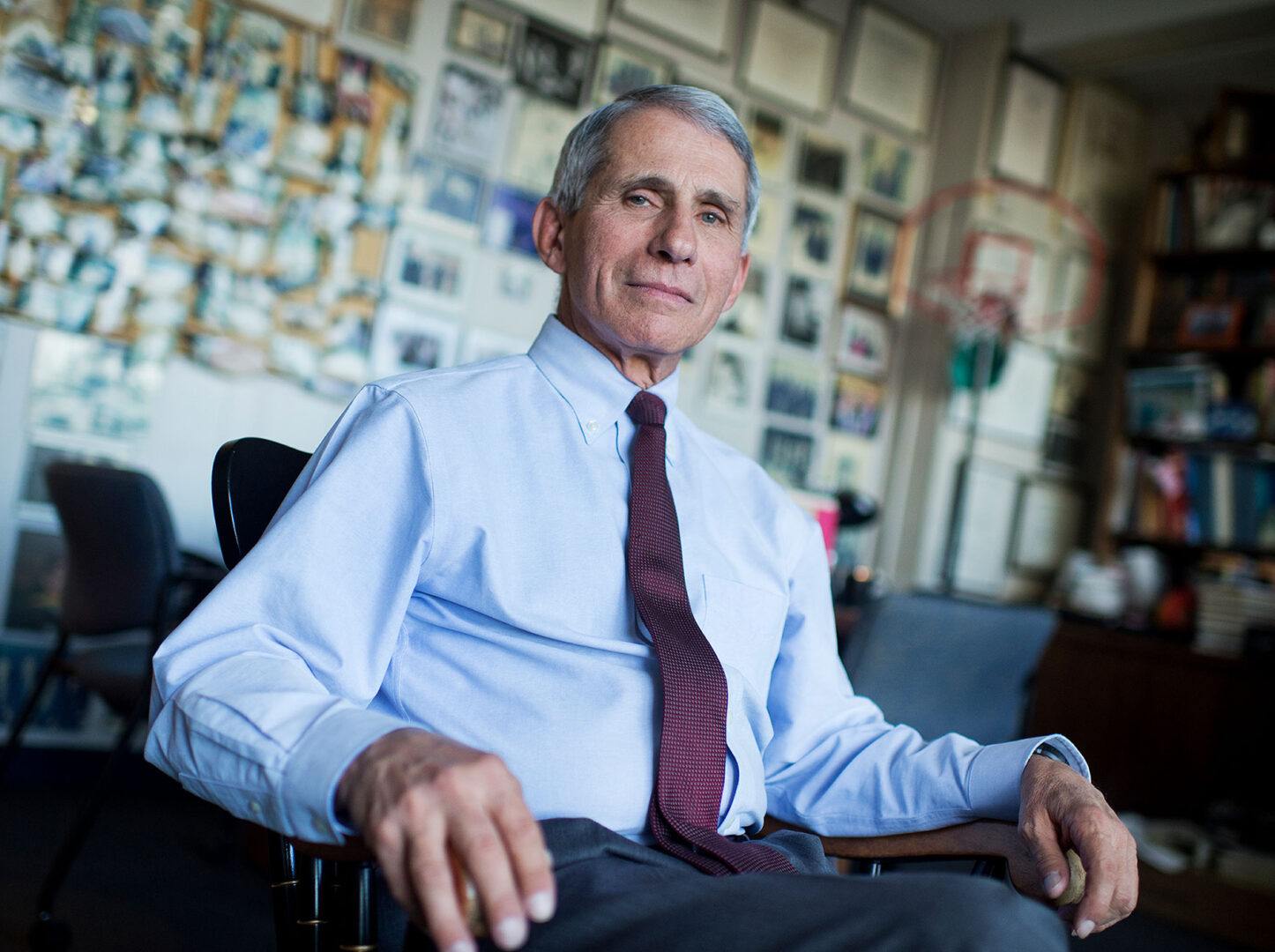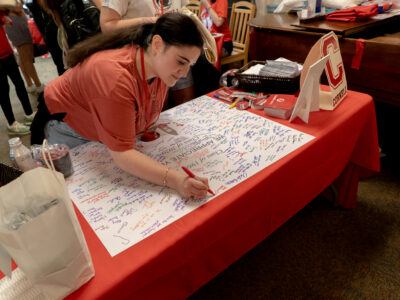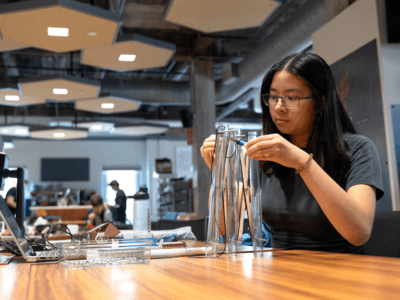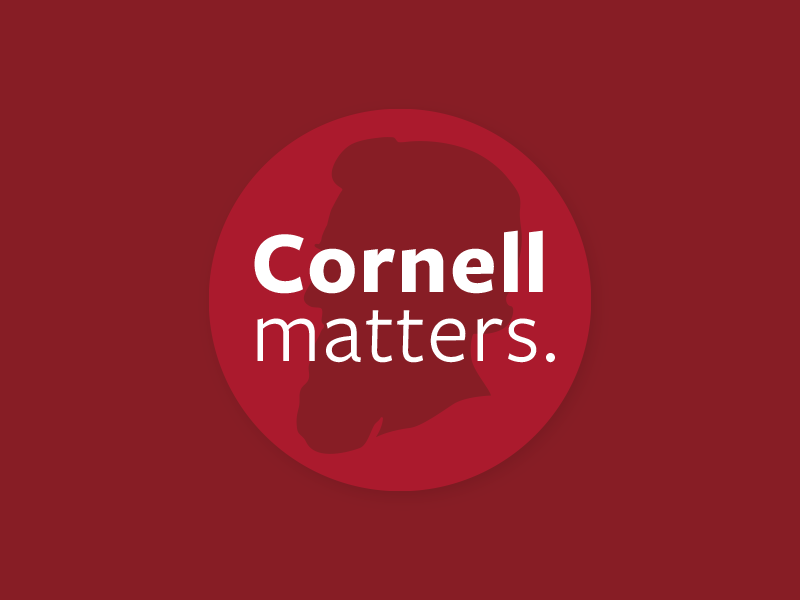As part of her work with the World Health Organization (WHO), Dr. Maria Van Kerkhove ’99 provides regular updates on the COVID-19 pandemic and routinely answers common questions about the virus for members of the press. On January 26, she shared her expert insights with members of the Cornell community.
Dr. Van Kerkhove shared her experiences working as an infectious disease epidemiologist with the WHO Health Emergencies Program to address the global pandemic. She serves as the technical lead for COVID-19 response and the head of the emerging diseases and zoonosis unit at WHO in Geneva, Switzerland. In this role, she is responsible for the guidance WHO issues to its member states.
“We coordinate the response around the world to suppress infection and save lives—that’s our mission,” she said, adding, “It’s been quite a year.”
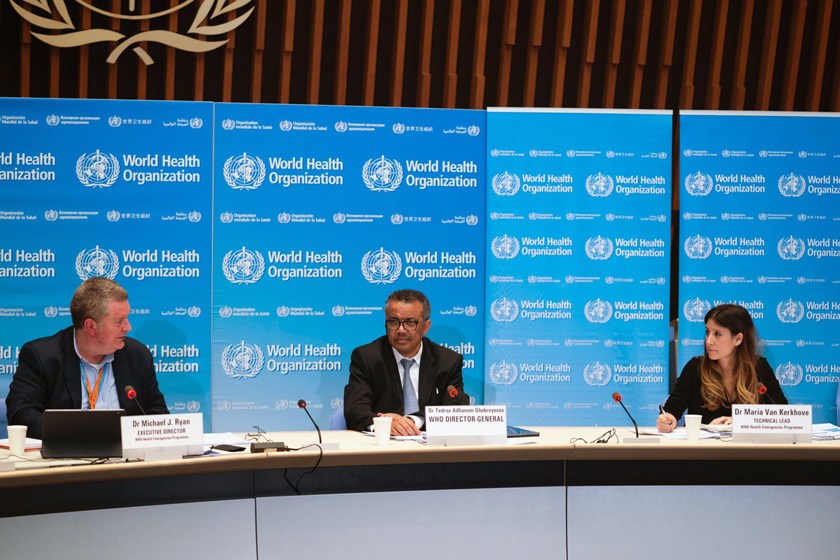
An online audience of nearly 500 Cornell alumni tuned in from states across the U.S. and more than 20 nations. Alumni submitted over 100 questions in advance of the event, which was co-hosted by the Cornell Club of Chicago and the College of Agriculture and Life Sciences Alumni Association. Stefanie Jaron Hest ’99, a friend of Dr. Van Kerkhove and board member with the Cornell Club of Chicago, moderated the event. Dr. Scott Braunstein ’86 and his son, David Braunstein ’21, took turns asking questions.
Looking back with gratitude
Dr. Van Kerkhove began by expressing gratitude for the learning opportunities Cornell afforded her during her undergraduate career.
“I think of Cornell often,” she said. “It was the first time I really started to grow up. The classes were incredibly hard, and it instilled in me a strong work ethic.”
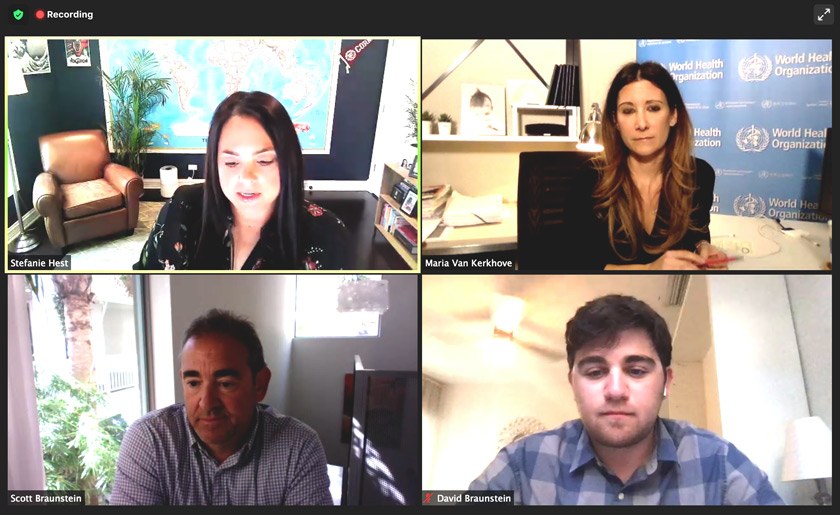
She expressed gratitude for the people she met at Cornell—including her husband Neil Van Kerkhove ’99, for the faculty she worked with, and for the breadth of the curriculum that allowed her to discover new interests and “fields I never knew existed.”
“I appreciated that many of our classmates started out in one field and graduated in an entirely different field,” Dr. Van Kerkhove said. “Cornell is part of my being. I’m so grateful to have had that opportunity—those four years.”
Tracking variants of concern
Dr. Van Kerkhove explained that most of the viruses she tracks in her work are zoonotic, meaning that they spill over from animal populations into human populations. WHO coordinates a global network of labs that help identify and test these new pathogens, which include mutations of existing viruses. For example, in December 2020, the United Kingdom noticed an increase in transmission of COVID-19 in the southeast of England. “They checked the sequence of the virus and noticed several changes,” she said.
Dr. Scott Braunstein noted that many audience members had questions about the new variants of the virus that have appeared over the past few months in the UK, South Africa, Brazil, and California. He asked Dr. Van Kerkhove to describe how WHO detects and monitors these variants.
Dr. Van Kerkhove explained that in order to help identify variants of interest and variants of concern, WHO is currently working with labs around the world to detect changes in the virus and is setting up a bio-hub in Switzerland. “We need to beef up our ability to do better sequencing and share the sequencing with labs and academic partners,” she said. “The new bio-hub will receive voluntary samples from countries around the world, and share them with other countries [to carry out further studies] so individual countries don’t have to do this.”
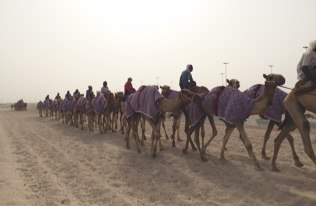
According to Dr. Van Kerkhove, WHO is also working to increase global surveillance and preparedness to respond to the current pandemic, as well as to future threats. WHO currently relies on an open-source system—Epidemic Intelligence from Open Sources—to troll for digital rumors and signals in order to identify emerging threats. “This is how we identified a cluster of unknown epidemiology on January 1, 2020, in Wuhan, China,” she said.
Dr. Van Kerkhove and her colleagues at WHO are developing a risk assessment framework which will help them to evaluate the transmissibility, disease severity, and responsiveness to treatments for new variants of COVID-19. This risk assessment framework builds upon many existing systems globally and will allow WHO and its partners to properly assess emerging variants.
“We are going to see more of them,” Dr. Van Kerkhove said. “The more this virus circulates, the more it has the opportunity to mutate and change. We are all in the battle of our lives, not against each other, but against the virus. We need to follow the science and control the spread using the tools at our disposal, including the vaccine,” she added.
The timing is up to us
Dr. Van Kerkhove noted that vaccines are a “new and very powerful tool” in our arsenal to fight COVID-19. Yet, she noted that many countries have been able to control the virus without the vaccine. “Our lives will go back to normal,” she said, “but when is up to us. Many countries in Asia and in the Asia-Pacific region have been able to go back to a new normal,” she said.
She explained that the challenge remains how to keep transmission of the virus low, while easing interventions to allow people to work and move about. “There are still many questions about what this new normal will look like,” she said.
Dr. Van Kerkhove noted that there have been hundreds of studies done around the globe that indicate that the majority of the world’s population is still susceptible to COVID-19. According to these studies, “less than 10 percent of the populations studied have evidence of infection,” she said.
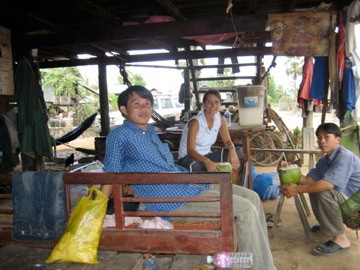
Right now, WHO has two top priorities: to make vaccines available to both vulnerable people and to frontline workers in all countries. “Low-income healthcare workers in all countries need it before high-income less vulnerable citizens of wealthy countries,” she explained.
Dr. Braunstein asked her how she felt about the recent U.S. decision to rejoin WHO. Dr. Van Kerkhove replied that she and her colleagues at WHO “are grateful that the U.S. did not follow through on their withdrawal.”
She emphasized that although she and some of her colleagues are Americans, they are first and foremost scientists. “We are solely focused on the job at hand, on understanding the science and translating that into policy,” she said. “At WHO, we will work with anyone anywhere to keep the world safe—that’s not going to change,” she added.
Being empowered, informed, and engaged
David Braunstein, who graduated in January 2021 with a degree in Global Health, asked Dr. Van Kerkhove to talk about Cornell’s successful reopening strategy and about how other universities, particularly those without a “plethora of resources,” might learn from the Cornell model.
Dr. Van Kerkhove expressed that she was impressed both by Cornell’s comprehensive approach to reopening and by the commitment demonstrated by Cornell students to make the reopening work.
“It’s about a combination of interventions,” she said, noting that, “you see this in successful reopening of universities and schools around the world.” She explained that this combination includes mask wearing, physical distancing, ventilation, outdoor education when possible, and testing with rapid results and rapid interventions, she said, “so that you can successfully break chains of transmission.”
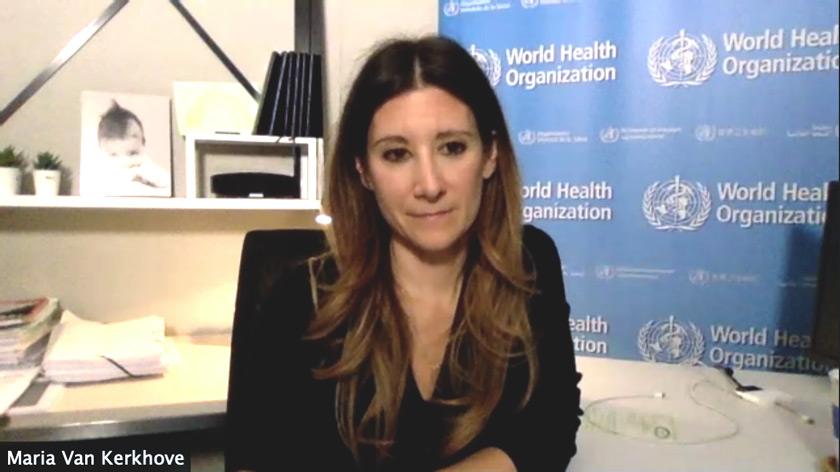
“Another thing that really impressed me at Cornell is that students were part of the solution,” she added. “An empowered, informed, engaged population is key. At Cornell, the students took responsibility to become part of the solution,” she said.
Braunstein asked Dr. Van Kerkhove what advice she had for the current generation of students who are looking to address global challenges. She advised them to “reach out across disciplines and seek to answer questions posed from different perspectives.”
For example, she explained how making connections between animal health and human health can provide new and transformative insights to advance our understanding. This interdisciplinary approach informs the One Health initiative at Cornell, which has spawned radical new collaborations across campus.
“We need the next generation to challenge what we do and how we do it,” Dr. Van Kerkhove said. “We have lots of room for improvement.”

